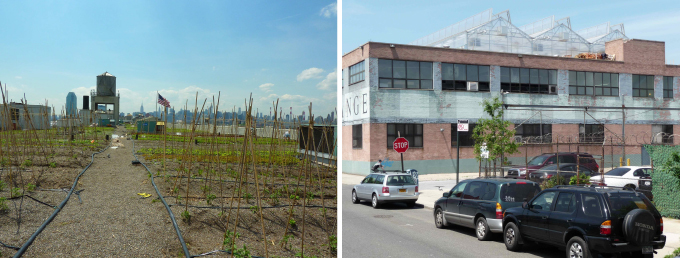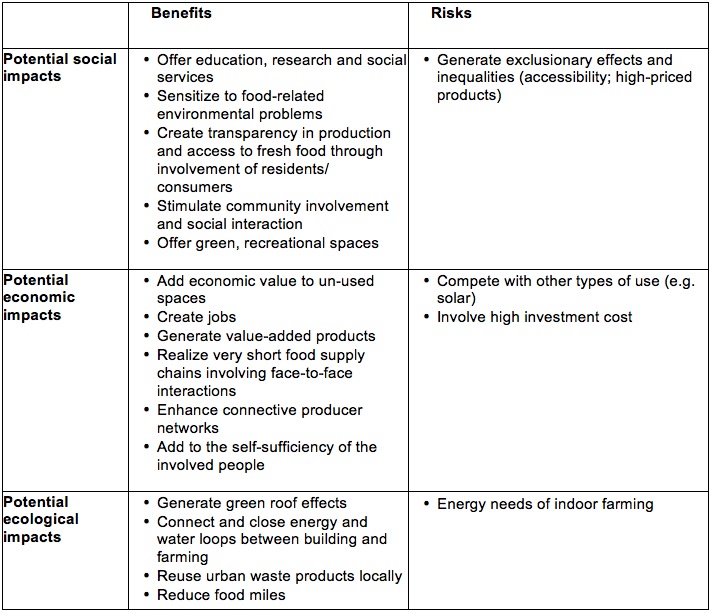Zero-acreage Farming (ZFarming)
31th August, 2013
Contributor: Susanne Thomaier, TU Berlin
Research on Urban Farming in and on buildings
Concept
ZFarm is a research project, funded by the German Federal Ministry of Education and Research, which explores functionalities and innovative practices of farming in and on urban buildings.
A growing number of urban farming projects are being started in and on existing urban buildings, using rooftop spaces or abandoned buildings. This includes soil-based or hydroponic open rooftop farms, rooftop greenhouses as well as indoor farming. These projects are characterized by the non-use of land or acreage for farming activities, why we defined the expression “Zero-Acreage Farming” (ZFarming) to summarize them.
The objective of the project is
(1) to illustrate and systemize the present practice of ZFarming, considering different forms, functions, players, underlying principles, and procedural mechanisms,
(2) to identify specific novelties inherent to ZFarming,
(3) to activate relevant players in Berlin, and to elaborate potentials and challenges for ZFarming in Berlin together with them in a series of different workshops,
(4) develop a planning guideline for interested ZFarming pioneers together with the players involved in the workshop series.
Results
We have gathered a compilation of existing ZFarming projects in North America, Europe, Asia and Australia, which can be accessed on www.zfarm.de. Based on an analysis of these identified projects, which has been complemented by expert interviews we could identify relevant information on:
- Sites, buildings and parts of buildings used for ZFarming
- Applied farming technologies
- ZFarming products, activities and practices
- Marketing of ZFarming products and services
- ZFarming management
- Spatial accessibility of ZFarming projects for the public
- Financing of ZFarming projects
- Planning and implementation process of ZFarming projects
The project has initiated a interdisciplinary ZFarming network in Berlin – involving planners, architects, engineers, people with agricultural background, different city departments, researchers, practitioners etc. – and has contributed essentially to put the topic on the city’s agenda.
We have elaborated a guideline with relevant information on the planning and implementation process of ZFarming projects in Berlin (e.g. how to find a suitable building/roof; business models; what are suitable products to grow; questions concerning zoning and building permits). It will be published end of September 2013.
Benefits
Potential impacts of ZFarming
What are the lessons learn to be used/transferred/implemented in the other partner cities?
The workshop series was a very useful instrument for two main reasons:
(1) ZFarming is a very complex topic, which necessarily requires the involvement of players from various disciplines. The workshops have proven to be a good approach to involve a broad range of experts with different backgrounds and to integrate their knowledge in the research project.
(2) The workshops served as incubators to put ZFarming on the agenda in Berlin. By involving a broad range of researchers and practitioners in the workshops, they functioned as multipliers for ZFarming.
(3) The workshops served as a platform for exchange between players who are interested in the topic of ZFarming. It enhanced new collaborations. The workshops have generated a ZFarming network that aims to continue the exchange even after the end of our research project.
Formulate a question to the network:
How do you judge the opportunities for Zfarming in your city?

